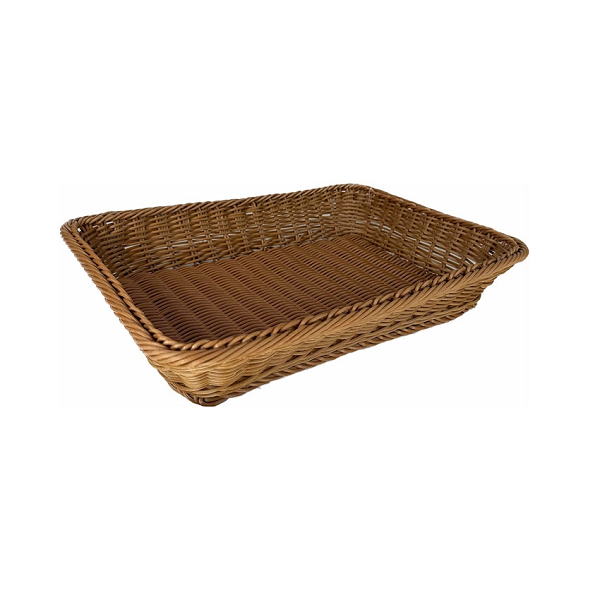Views: 272 Author: Vickey Publish Time: 2024-03-18 Origin: Site









Woven trays have become a popular choice for adding a touch of natural texture and sophistication to home decor. Whether used for organizing everyday items, serving food and drinks, or simply displayed as decorative pieces, woven trays can add warmth and style to any space. To ensure that your woven trays last a lifetime and maintain their beauty, it's essential to follow proper care instructions based on the materials they are made of.
Proper care and maintenance of woven trays are crucial not only for preserving their aesthetic appeal but also for extending their longevity. Neglecting to care for your woven trays can lead to damage such as warping, fading, or even breakage, diminishing their functionality and overall lifespan. By adopting good care habits and following the right cleaning and storage practices, you can enjoy your woven trays for years to come.
When using woven trays, it's important to handle them with care to prevent any unnecessary damage. Avoid placing heavy or sharp objects in the tray that could cause it to bend or break. To keep your trays looking their best, regularly wipe them with a damp cloth to remove dust and dirt. Additionally, storing your woven trays in a dry place will help prevent mold and mildew from forming, prolonging their lifespan.
Woven trays are crafted from various materials, each requiring specific care practices to maintain their quality. Here are some care instructions for common materials used in woven trays:

Wicker trays should be dusted regularly with a soft brush to remove any buildup. Avoid exposing wicker trays to prolonged direct sunlight as this can cause them to dry out and become brittle. To keep wicker trays flexible and prevent them from cracking, treat them with a wicker conditioner or oil periodically.
To clean rattan trays, use a mild soap and water solution and gently wipe them down with a soft cloth. Avoid placing rattan trays near sources of extreme heat or moisture, as this can cause them to warp or become damaged. To maintain the luster of rattan trays, use a wax or polish designed for natural fibers.
For seagrass trays, vacuuming regularly can help remove dust and debris that may accumulate in the weave. When spot-cleaning seagrass trays, use a damp cloth and mild soap to gently clean the surface. To prevent seagrass trays from fading, avoid placing them in direct sunlight and consider rotating them periodically to ensure even exposure.
Accidents happen, and stains or spills on your woven trays are inevitable. To address common stains like wine or food, act quickly by blotting the affected area with a clean cloth to absorb as much liquid as possible. For tougher stains, consider using a mild soap or a specialized cleaner suitable for the material of your tray. Remember to follow up with a gentle wipe-down to remove any residue and prevent future staining.

When not in use, store your woven trays with care to prevent them from becoming misshapen or damaged. Stack trays neatly to avoid warping and ensure they retain their original shape. For long-term storage, consider using a protective cover to shield the trays from dust and moisture. If space is limited, hanging or wall-mounting your trays can be a stylish and practical storage solution.
If you prefer to use natural cleaning products, you can create DIY solutions to clean your woven trays effectively. A mixture of vinegar and water can help remove dirt and grime, while baking soda can tackle tougher stains. By using eco-friendly cleaning products, you can maintain the beauty of your woven trays while minimizing your environmental impact.
Caring for your woven trays is essential for preserving their beauty and functionality over time. By following the care tips and instructions outlined for different materials, you can ensure that your woven trays last a lifetime and continue to enhance your home decor. Remember to handle them with care, clean them regularly, and store them properly to enjoy the timeless appeal of woven trays in your living space.